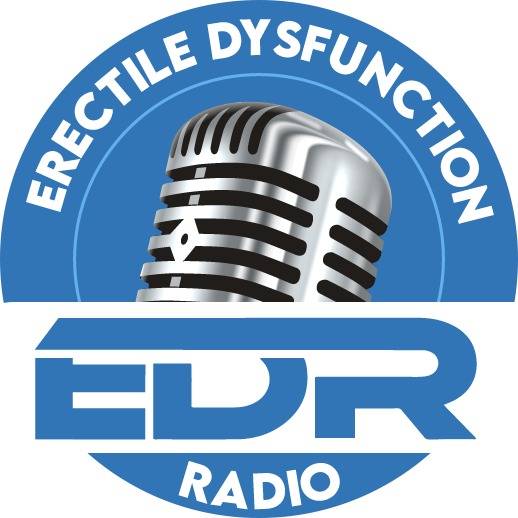
Listen to this episode Should I Talk to my Partner about Erectile Dysfunction? through the podcast player above.
Erectile Dysfunction Radio Podcast
We discuss the benefits of talking to your partner (should you have one) about erectile dysfunction on today’s episode of the podcast. We also offer some helpful tips on the best way to navigate this potentially life-changing conversation with your loved one.
Did you know? We recently published a blog for patients about the mind’s role in ED for the Sexual Medicine Society of North America (SMSNA). You can read it here: https://www.smsna.org/patients/blog/the-role-of-the-mind-in-erections-and-erectile-dysfunction
The Erectile Dysfunction Radio Podcast is dedicated to educating and empowering men to address erectile dysfunction, improve confidence, and enhance the satisfaction in their relationships. This podcast is hosted by certified sex therapist, Mark Goldberg, LCMFT, CST.
Transcript of Episode 41 – Should I Talk to my Partner about Erectile Dysfunction?
 Casey: Today we’re going to be talking about partnerships, relationships and communication, specifically, I want to ask about talking to your partner when you have ED. Is this ill-advised? Is this something you should be doing?
Casey: Today we’re going to be talking about partnerships, relationships and communication, specifically, I want to ask about talking to your partner when you have ED. Is this ill-advised? Is this something you should be doing?
Communication and relationships go hand-in hand, as a therapist, do you have any general information or advice on what it takes to build and maintain healthy communication habits with your partner or your spouse?
Mark Goldberg: It’s hard to talk about communication, generally, there’s a lot of advice out there that you can find on the internet that is very general, very non-specific.
I think that every couple develops their own communication style. How often they talk. What they talk about. How they talk to each other. I tend to not generalize and say that there are specific things that a couple should be doing or could be doing that’s applicable to everybody.
What I can say is each partner needs to feel like they can communicate what’s happening for them, what they’re feeling, need to feel like they have a general sense of connection, security and comfort, freedom of expression within the relationship, how each couple gets there will probably be unique to them.
Casey: Why is communication such a reoccurring issue it feels like for most couples and for relationships?
Mark Goldberg: I don’t think there’s an easy simplistic answer to this question. No doubt that the most common reason why couples seek therapy is communication, that means a lot of different things to a lot of different people.
I think though, that the nature of our relationships today is one that puts a heavy emphasis on being heard, being understood, being cared for in a relationship, and it’s difficult. It is hard to be able to feel like you are connected, like you are understood.
I think the reason why couples find communication to be so difficult is because there is so much at stake in these relationships. We need to stay connected to our partners, we need to keep them in close proximity to the extent possible.
And a lot of times when we go to actually communicate it can result in conflict, distance, questions about what the other person is thinking, and the more that we go to disclose about ourselves, about what we think, what we feel, the higher the risk that our partners are going to look at us in ways that are uncomfortable, possibly judge us, and it makes it really difficult to communicate from a genuine place.

I’ll also add that a lot of times it’s hard for individuals to be able to identify what it is that they’re actually trying to communicate, and a lot of times they keep the conversation focused on the surface, a lot of times what I refer to as they talk about the content, but are not talking about what is actually going on for them on an emotional level, and that keeps these conversations flowing in a direction that feels very ineffective and very difficult.
Casey: Do you have any general advice for having difficult conversations with people? Maybe this advice could be applicable to talking to your partner about ED.
Mark Goldberg: So when it comes to communicating about difficult topics, and I consider erectile dysfunction to be a potentially difficult conversation, one of the important things to keep in mind is to make sure that you are not blaming.
A lot of times in the language that we use, we point fingers at the other person, we assign blame, and this can take the conversation down a really difficult path. One where in the exact moments that you need your partner to be there for you, you need his or her support to not only be understanding, be empathic toward you, but to also potentially be a part of working toward a solution.
And if they’re feeling blamed and they’re getting defensive, you’re going to have a really, really hard time talking with your partner, so first and foremost, I would say take responsibility, make sure that you are not blaming when it comes to communicating about this.
The other piece of advice that I would give is to be in touch with what you are feeling about your erectile dysfunction. If you’re feeling embarrassed, if you’re feeling shame, if you’re worried about being judged, and if possible to let your partner know about that at the onset of the conversation, to let them know that it’s a fear, it’s a discomfort, it’s hard to talk about, their sensitivity.
That’s going to help defuse some of the intensity around the conversation and hopefully help to make the conversation go easier.
Casey: Is there any reason you can think of why you wouldn’t want to discuss ED with your partner?
Mark Goldberg: So generally speaking, I would say no. However, I recognize that there are a number of situations that men find themselves in where talking to a partner about erectile dysfunction can potentially be more disruptive, more damaging, a deeper setback to the process of trying to gain and maintain reliable erections.
 So two things that come to mind are a man who is in a new relationship, is not very comfortable with the partner and is not sure how she’s going to react to the erectile dysfunction, so in those instances, I think a man has to be a little bit more calculated about disclosing the erectile dysfunction, or having a deep emotional conversation with somebody with whom the security and safety and comfort has not been established.
So two things that come to mind are a man who is in a new relationship, is not very comfortable with the partner and is not sure how she’s going to react to the erectile dysfunction, so in those instances, I think a man has to be a little bit more calculated about disclosing the erectile dysfunction, or having a deep emotional conversation with somebody with whom the security and safety and comfort has not been established.
The other situation that comes to mind is if a man’s partner is very sensitive and has already resumed responsibility, or is blaming him or herself for the erectile dysfunction, this can be a very challenging conversation, one that while it may be very important to have. May be best accomplished with the assistance of a professional.
Casey: It would seem that you have to almost have your ego in check at some point to have a conversation like this, do you want to discuss the role of the ego in all of this?
Mark Goldberg: I’ll make brief mention on this very broad topic in terms of what it means to a man to encounter erectile dysfunction, how that impacts your sense of self, his relationship with his own construct of masculinity, there’s a lot to be said.
But certainly to come forth and talk with anybody about this is difficult, it does require putting some of that ego in check, because a lot of men have been socialized to associate erections with their sense of manhood, with their sense of masculinity, and coming to terms with having some challenges in that arena can be very, very difficult.
And an ego can absolutely get in the way of having those conversations. Unfortunately, not having those conversations, not looking at what is happening in your relationship or partnering with the person who you’re having sex with in order to create the optimal environment to gain and maintain erections… could really be the difference between satisfactory sex and continuing challenges and distress of erectile dysfunction.
Casey: Do you have any other final thoughts or anything you want to add to the conversation before we end it?
Mark Goldberg: So I would say to any man listening to this who finds themselves debating what they should do is that more often than not, their partners are open are receptive, or understanding of the challenges, sometimes it’s difficult because a partner may internalize or may blame themselves, they may take responsibility when it’s not on them.
But generally speaking, partners are there for you, they want to be helpful, they want to be a part of this, and figuring out how to have that conversation can really make a huge difference. If you’re uncomfortable to get that conversation started on your own, seek a professional, there are many therapists out there that can help not only with helping an individual male to resolve erectile dysfunction, but can also help to facilitate these conversations in a constructive and beneficial way.
Subscribe to our Podcast
All ED Radio Podcast episodes are available on this website, ErectionIQ.com. You can also find and subscribe to it for free on Apple Podcast/iTunes, Spotify and YouTube.
Ready to Learn More?
To start your in-depth approach to resolving ED, try our online learning course called BEYOND THE LITTLE BLUE PILL, The Thinking Man’s Guide to Understanding and Addressing ED.

Ready to talk to an ED expert? Erection IQ founder Mark Goldberg helps men resolve erectile dysfunction. He offers individual, one-on-one services to men throughout the world through a secure, telehealth platform. It’s 100% confidential. You can visit the Center for Intimacy, Connection and Change website to
Schedule A Consultationwith Mark.




